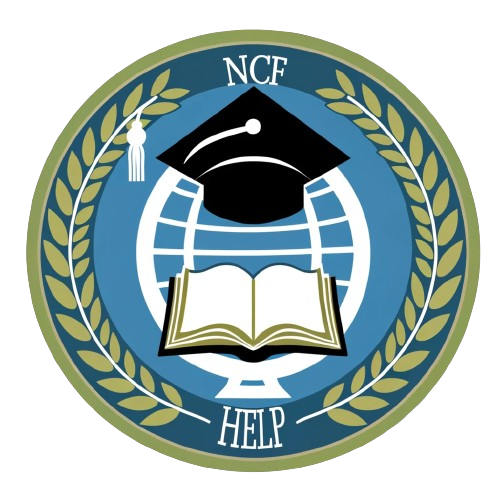Creating a positive school culture is essential for fostering an environment where students and teachers thrive. The National Curriculum Framework 2023 (NCF 2023) and school boards such as CBSE, ICSE, IGCSE, IB and state boards play a crucial role in shaping this culture. After working in schools for various capacities, I wanted to share the principles and strategies implied by these frameworks to build a school environment that emphasizes collaboration and respect.
The Importance of Positive School Culture
A positive school culture is characterized by an environment that promotes respect, inclusivity, and collaboration among students, teachers, and the wider school community. This culture is not just about the absence of negative behaviors but the presence of positive interactions and a supportive atmosphere that encourages growth and learning.
Principles of NCF 2023
The NCF 2023 outlines several fundamental principles that are pivotal in building a positive school culture:
- Holistic Development: The framework emphasizes the overall development of students, including their physical, emotional, social, and cognitive skills. This holistic approach ensures that students are well-rounded and prepared to face various challenges (Press Information Bureau) (Education.gov.in).
- Inclusivity: Creating an inclusive environment that caters to the needs of all students, including those from marginalized communities, is a key priority. The NCF aims to eliminate discrimination and bias, ensuring every student feels valued and respected (NCERT).
- Interdisciplinary Learning: By integrating different subject areas and encouraging connections between them, students can develop a broader understanding of the world. This interdisciplinary approach fosters critical thinking and problem-solving skills (Press Information Bureau).
- Competency-Based Education: Focusing on developing skills and competencies rather than merely acquiring knowledge is crucial. This includes enhancing critical thinking, creativity, communication, and problem-solving abilities (NCF-2023).
- Use of Technology: The NCF advocates for integrating technology into teaching and learning, using digital resources and tools for assessments and evaluations to make the education process more efficient and effective (Press Information Bureau).
Teacher Development and Empowerment
Empowering teachers with the right skills and knowledge enables them to foster a collaborative and respectful environment in their classrooms. Training programs that focus on student-centered teaching, interactive instruction, and active learning are essential (Education.gov.in).
“Attending workshops on student-centered learning transformed my teaching approach. I noticed a significant improvement in student engagement and mutual respect in my classroom.”
Ms. Ritu Sharma, a retired educator

Student-Centered Learning
Encouraging student-centered learning approaches is crucial. This involves creating opportunities for students to engage in group work, discussions, and collaborative projects. Such activities help students learn the value of teamwork, respect different perspectives, and develop interpersonal skills (Press Information Bureau).
“Working on group projects helped me understand my classmates better. We learned to respect each other’s ideas, which made our projects more innovative and enjoyable.”
Shefali Rustogi, a student from Delhi Public School
Inclusive Practices
Implementing inclusive practices that meet diverse learning needs and promote a culture of empathy and understanding among students is crucial.
“Incorporating inclusive practices in my classroom allowed students with different abilities to thrive. Watching them support each other was heartwarming and reinforced the importance of an inclusive environment.”
Ms. Anjali Verma, a special educator
Creating Safe and Supportive Environments
It is essential to establish clear policies against bullying and discrimination, provide mental health support, and create a nurturing atmosphere where students can express themselves freely (Press Information Bureau).
“Implementing anti-bullying policies and providing mental health resources has significantly improved our school’s atmosphere. Students feel safer and more supported, which has positively impacted their academic performance.”
Mrs. Sushmita Sharma, a Principal from Kendriya Vidyalaya

Role of Leadership
School leaders, including principals and administrators, should have a yearly goal to be a role model for respectful behavior, promote open communication, and encourage collaboration among staff and students. Leadership that is visible, approachable, and supportive can significantly influence the school’s overall atmosphere (Education.gov.in).
“As a leader, being approachable and supportive is crucial. When students and teachers feel heard, it fosters a culture of respect and collaboration.”
Mrs. Veena Singh, founder principal Unison World School
Community Involvement
Engaging parents and the wider community in the school’s activities helps reinforce a culture of respect and collaboration. Schools can organize events, workshops, and meetings that involve parents and community members, ensuring they are active participants in the educational process (Press Information Bureau).
“Being involved in school activities and workshops helped me understand my child’s learning environment better. It created a sense of community and strengthened our bond with the school.”
Mrs. Nisha Agnihotri, a parent from a CBSE school

Final Thoughts
Building a positive school culture in Indian schools, as outlined by the NCF 2023 and school board guidelines, requires a multifaceted approach that includes holistic student development, inclusive practices, teacher empowerment, and active community involvement. By fostering an environment of collaboration and respect, schools can create a supportive and thriving educational experience for all students.

